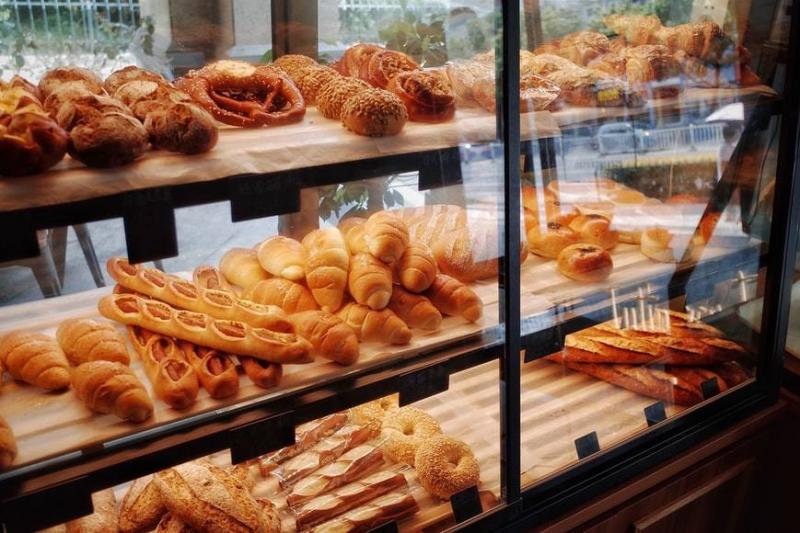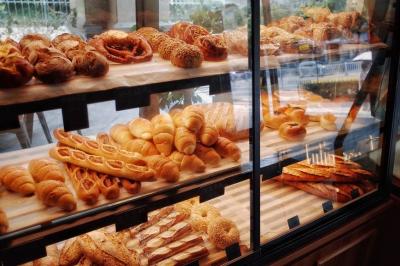Today, the Lebanese wake up to a bread crisis. Wheat is cut off in 6 out of 11 mills, and the Millers' Union has announced a shutdown until the halted mills resume operations. The flour available at bakeries, if any, is all they have and may only last a day or two, at most until Saturday. Due to this crisis, bread will not be distributed in the market today and will only be available at bakeries. In Lebanon, there isn’t just one crisis, but multiple crises that keep renewing. Similar to what happened with fuel shortages and long queues at stations due to fears of running out, the same is true for bread, as some bakeries witnessed a rush of consumers yesterday fearing a cutoff. The sight of queues outside bakeries is expected to worsen today, as bread will only be available in some and not others, especially after the announcement of the mills' closure. All these crises are connected by a common factor, which is the delayed action of the Central Bank in opening credits for essential goods it still supports. The crisis is exacerbated by the refusal of Banque du Liban to open any credit for the state unless the government agrees to sign a lending contract with the Central Bank, which would involve the bank providing the amount needed for the government in U.S. dollars, in exchange for the government's commitment to repay the loan with interest from its foreign currency revenues in annual installments over a maximum of ten years. While the central bank requires this contract to fund purchases of consumer necessities related to food and health security, such as wheat, flour, and medicines for chronic and serious diseases, the government has recently referred the new “lending contract” requirement to the Legislative and Consultative Committee. Since the government refuses to sign it before receiving the committee's opinion, this means that the recurring crisis may drag on, and it certainly will not be the last. Additionally, after several appeals from mill owners regarding the necessity of opening credits to secure market needs for wheat, and after 6 mills halted their operations with the remaining mills unable to meet market demand, the Association of Mill Owners announced in a statement following an emergency meeting held yesterday “the suspension of work until the halted mills resume operations.” The statement confirmed that the mills are currently facing a shortage of wheat, prompting them to use stored grain to provide flour to Bakeries for bread production. This warning follows a notice from the Union of Bakeries and Ovens in Lebanon that the shortage in flour deliveries from the mills and the cessation of several bakeries' bread production would lead to a bread crisis. These warnings have become a reality, as Lebanon now enters a predicted worsening bread crisis by the end of this week if Banque du Liban does not open the necessary credits for wheat.
The crisis starts today. In this context, the head of the Mill Owners' Union, Ahmad Haytiti, confirmed that starting today, the bread crisis begins. He stated to "Al-Jomhouria": “Our main problem is linked to the wheat stock available at the mills; some have enough stock for a month and others have enough for 15 days, while some mills have stopped working due to depleted stocks. The problem is that we are discussing the major mills in the country, meaning the impact of their closure will be significant and apparent in the market.” He explained that it is not possible to aggregate all available stock in the country and claim that we have enough wheat for a month, as no mill can substitute for another. Each mill has a specific production capacity, so if one produces about 200 tons of flour daily, it cannot increase its production capacity to 500 tons to cover the shortage caused by the closure of other mills. He revealed that half of the major mills no longer have any stock of subsidized wheat, and although ships have arrived and are docked at the port, Banque du Liban has not yet opened credits for them. Haytiti confirmed that the crisis affects all regions equally, but it may intensify in some areas more than others, with bread expected to be more scarce in the southern suburbs compared to other regions. Moreover, it cannot be said that there will be no bread in the market today, as this is linked to each bakery's stock of flour; bakeries with depleted stock will stop operating. However, the crisis is looming from today and is expected to intensify in the coming days. He stated: “If funds are not transferred to the ships and we reach the end of the week, this means the crisis will continue until Monday, but there is not a single bakery that has enough flour to last three days.”
Bread will be exclusively available at bakeries. For his part, the head of the Bakeries' Union in Mount Lebanon, Antoine Seif, confirmed to "Al-Jomhouria": “Today, bread will be available only inside bakeries, but distribution in the market will not be sufficient or as usual,” adding that most bakeries are facing a stock shortage, so sales will be limited to within the bakery. When asked if bread will be available in all regions equally, he replied: “We hope so, but it is linked to each bakery's stock since the main problem lies with the mills, not the bakeries.” In response to another question, Seif noted that some bakeries have stock that lasts for two or three days at most, but certainly, there is a crisis, and it will intensify if Banque du Liban delays opening the credits for wheat for more than two days.




